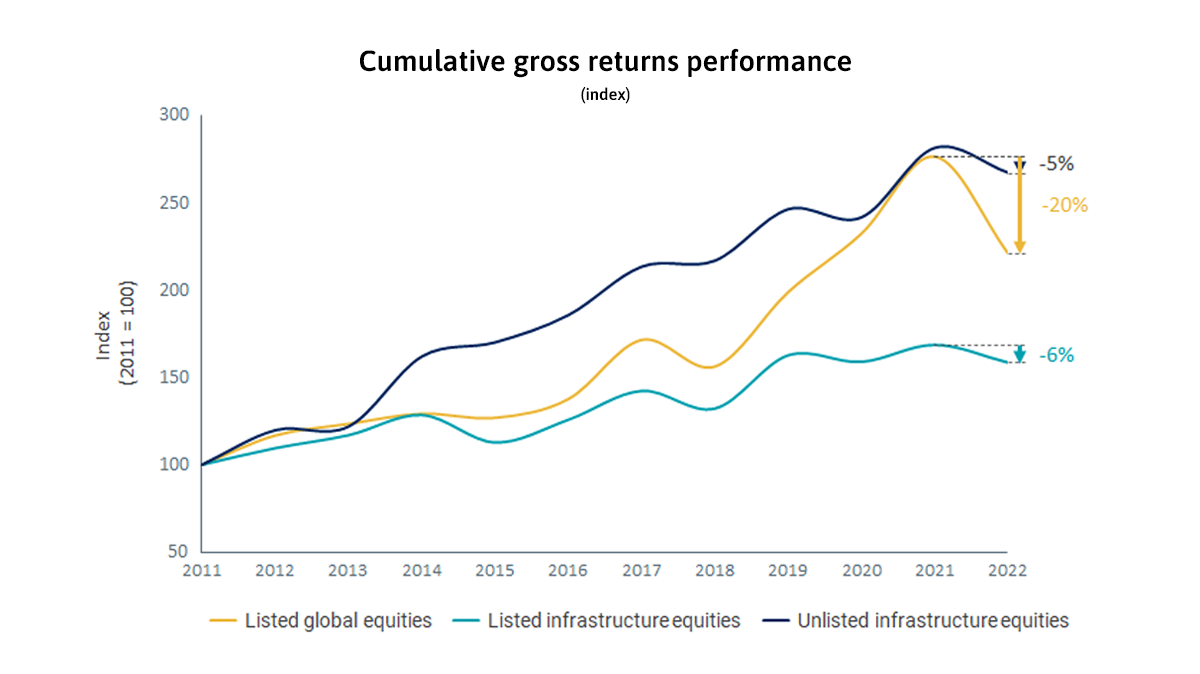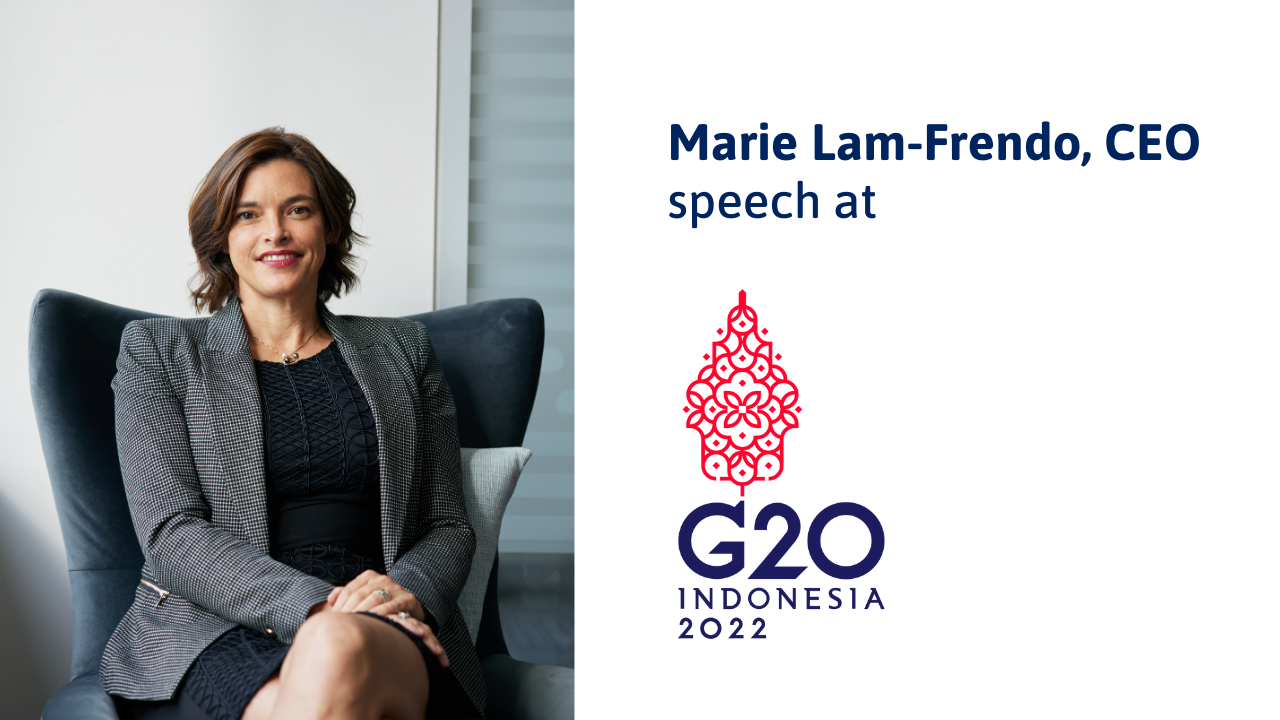1292 results found
Featured results



More results
Amidst rising interest rates and soaring inflation, infrastructure debt is an increasingly attractive investment strategy for private investors. Alex Murray, Vice President, Research Insights, Preqin explores this trend and what it means for infrastructure investments.
Post-COP15, GI Hub's Strategic Adviser Denis Crevier explores some meaningful outcomes for biodiversity and its influence on infrastructure.
What qualifies as critical infrastructure, and what can governments and industry do to increase its resilience? We spoke to four experts for their perspectives.

Infrastructure equities provide stronger protection against inflation shocks than the broader equity market. During the rapid inflation shocks in 2022, the return on infrastructure equities was more resilient than that on global equities, which drove private fundraising for infrastructure to record levels.


Watch our CEO Marie Lam-Frendo explore solutions and challenges for decarbonising the transport sector in the latest episode of CNBC's 'Greenprint for a Sustainable Future’ series.
EBRD’s Director of Sustainable Infrastructure Policy and Project Preparation Matthew Jordan-Tank shares insights on how Egypt’s 6th of October Dry Port supports sustainable infrastructure development.
A summary of the first G20 Infrastructure Working Group meeting under the Indian G20 Presidency in January 2023
In this Q&A our CEO, Marie Lam-Frendo explores how the G20 has the power to help bridge the current infrastructure investment gap - a gap that is hindering strong, sustainable development.

In 2021, private investment in infrastructure projects in primary markets recovered to its pre-pandemic level but remains stagnant and far shy of what is needed to close the infrastructure investment gap.


This book questions the premise that Public-Private Partnerships (PPPs) have a performance advantage over traditionally procured projects. It examines novel research comparing the differences in performance between PPP and traditionally procured infrastructure projects and thoughtfully scrutinises the supposed advantages of PPPs.

This study examines all aspects of the digitalisation of infrastructure for a sustainable future

This report from the World Bank looks at the European Union's experience in furthering a circular economy, highlighting lessons that can benefit countries within and beyond Europe’s borders.



The Global Infrastructure Investor Association (GIIA) in partnership with PwC, published Unlocking Capital for Net Zero Infrastructure. Based on interviews with infrastructure investors, the report identifies an urgent and immediate need for additional investment in order for the UK to meet its ambitious net zero targets.

The Global Infrastructure Investor Association, in partnership with Marsh & McLennan, examines the impacts that rapid technological advancement are having on infrastructure assets around the world and what these will mean for the sector in years to come.

This report discusses the specific risks to infrastructure investors under each of the key risk categories outlined by the Task Force on Climate-related Financial Disclosures, as well as crucial levers for achieving climate resilience at both the portfolio and asset level for the infrastructure sector.

Infrastructure Australia states that "A transformational change is needed in how we plan and deliver infrastructure in Australia. This change must focus on delivering better outcomes for the community and for business through a more productive, innovative and sustainable infrastructure sector." This roadmap presents reforms to change the way projects are procured and delivered, which will have long-term consequences for the services received by infrastructure service users and the community.

HM Treasury in the UK publishes its Green Book to provide guidance to UK public servants, including decisionmakers, about how to appraise policies, programs, and projects. It publishes this guidance for all public servants (not only analysts) and notes that "key specialisms involved in public policy creation and delivery, from policy at a strategic level to analysis, commercial strategy, procurement, finance, and implementation must work together from the outset to deliver best public value."

The Coalition for Climate Resilient Investment (CCRI) created the Physical Climate Risk Assessment Methodology in response to investor demand for comprehensive solutions to improve the integration of physical climate risks into investment appraisal practices.






 Infrastructure Monitor
Infrastructure Monitor







